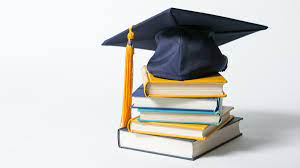The state’s pool of language professionals has grown substantially over the past four years thanks to the NSW Government exceeding its election commitment to fill 400 positions through the Multicultural NSW Interpreting Scholarship Program.
Facilitated by a number of educational institutions, including TAFE NSW, University of NSW and RMIT, the program has enabled people speaking more than 50 different languages and dialects to join the NSW Government’s interpreting ranks.
Minister for Multiculturalism Mark Coure said the Interpreting Scholarship Program empowers people to use their language skills as a career and help their communities access government information and services.
“We have seen through the latest Census data that more and more people are speaking a language other than English at home, including new and emerging languages that weren’t prominent in communities five, ten or even fifteen years ago,” Mr Coure said.
“We have worked with various universities and TAFE NSW so the program could evolve to train those who speak these languages and have them become qualified interpreters.
“By doing this, we have been able to bolster our interpreting ranks with a greater breadth of language capabilities and ensure we have the people available to support our state’s diverse communities.”
The program’s most recent graduates include TAFE and university-trained interpreters speaking Amharic, Dari, Hazaragi, Kannada, Karen, Mongolian, Swahili and Tamil.
NSW Federation of Community Language Schools president Lucia Johns said the program was further evidence of the value of multi-lingual study.
“Language is one of NSW’s greatest cultural, social and business assets. So it cannot be ignored and must be fostered and developed. By teaching children languages at community language schools throughout the state we are protecting and guaranteeing our future linguistic skills,” Mrs Johns said.
“Children who learn a second language at community languages schools will have the option of developing a career in interpreting and translation which benefits all aspects of our society.”
Mr Coure added that the program had attracted a great mix of people of various ages across the state interested in using their language skills as a career, including from regional NSW.
“More than 20 per cent of students participating in the program are from regional NSW, which shows our multicultural state isn’t in one city or suburb,” Mr Coure said.
“We have also had many people from refugee backgrounds use their language skills to gain employment and support their community. This year alone, 30 per cent of scholarship participants were on refugee or special humanitarian visas.
“Everyone who completes the program and attains their certification can join our expert panel of language professionals.”
Through the 2022-23 NSW Budget, $16 million was secured over two years to improve the state’s whole-of-government language service.
“The NSW Government understands that a strong and robust language service is key to a future without barriers for diverse communities, and ensure no one is restricted in accessing information or services because of the language they speak,” Mr Coure said.
For more information about the Multicultural NSW Interpreting Scholarship Program, visit multicultural.nsw.gov.au.
| Languages Spoken by Scholarship Students | |||
| Amharic | Filipino | Kurdish- Kurmanji | Thai |
| Arabic | Greek | Macedonian | Tibetan |
| Arabic/Sudanese | Hakha Chin | Malayalam | Tigrinya |
| Assyrian | Hazaragi | Mongolian | Tongan |
| Burmese | Hmong | Nepali | Turkish |
| Chaldean | Hungarian | Persian | Twi |
| Chinese Hakka | Igbo | Portuguese | Ukrainian |
| Chinese-Chiu Chow | Indonesian | Samoan | Urdu |
| Cook Islands Maori | Italian | Serbian | Uyghur |
| Creole | Kannada | Somali | Vietnamese |
| Dari | Karen | Spanish | Zomi Chin |
| Dinka | Khmer | Swahili | |
| Ewe | Kinyarwanda | Tamil | |
| Fiji Hindi | Kirundi | Telugu | |
| Fijian | Krio | Temne | |
本文由客户/合作伙伴提供,不代表微悉尼立场。

